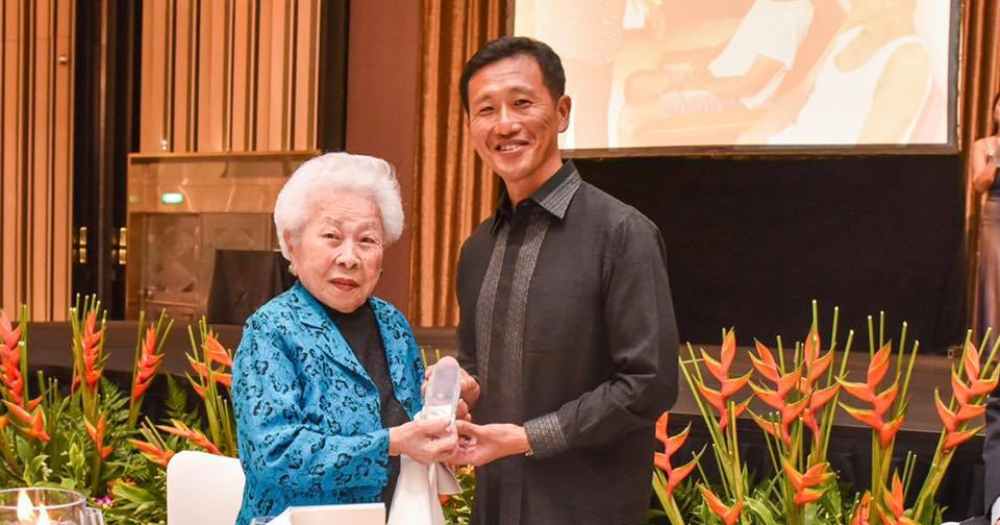Singapore's Minister for Education (MOE) Ong Ye Kung has acknowledged the trend of weakening public trust in institutions, while offering his take on what can be done to reverse the slide.
Ong gave a speech on July 3 at the Yong Loo Lin School of Medicine 2019 Medical Dinner held at the Raffles City Convention Centre.
He was guest-of-honour at the dinner, which serves to welcome graduates of 2019 from NUS Medicine and Nursing into the Singaporean healthcare community, while also honouring alumni.
"For a national institution to be effective, it needs leadership and talent, effective organisation, and above all, it needs public trust – the most important ingredient. But trust should not be taken for granted," he said in his speech that has been published on MOE's website.
Weakening trust
However, Ong admitted that public trust towards institutions was generally weakening.
"The medical profession, the education system, the mainstream media or even governments – nobody is spared," he said.
To illustrate his point on the consequences of eroding trust, Ong gave the hypothetical example of what might happen if a member of the public does trust a front-line public officer:
"If the officer suspects that the member of the public is secretly recording the conversation and if he is not happy with the answer, he would upload to social media and create a fuss, then there is no trust, and service cannot possibly be good. The public officer will ensure he sticks strictly to the rules, the procedures and the script, because that is publicly most defensible. So forget about the exercising of judgement and flexibility to cater to exceptional circumstances.
When there is no open and honest communication, and trust is weakened, the system and the institution as we know it can no longer serve its recipients well. In fact, you will start to get perverse behaviour."
Ong also relayed a personal anecdote: His car from 20 years ago required fixing and he went to one mechanic for a price quotation, and it amounted to a significant sum of money.
He didn't bother to seek out a second opinion, as it was a hassle, and despite being advised to do so.
Ong eventually went ahead with the first mechanic and had never known since then if he could have repaired his car for cheaper elsewhere.
As a result, he suffered a loss of trust with that mechanic.
The causes, or not.
In examining the causes of weakening public trust, Ong dismissed suggestions that it was due to an asymmetry of information — a term used to describe a situation where the service provider has more information than the buyer.
"This cannot be the reason for the weakening of trust, because surely we want to be served by someone who knows more than us. I would be worried if my doctor knows about medicine only as much as I do," he said.
He also stated his belief that the loss of trust was not due to the greater availability of knowledge to the public:
"I think it is not a bad thing that the people we are serving are getting more educated, informed and questioning, and taking an interest in our work. We should not mistake this as a lack of trust in our profession or our judgment. I think what it means is that what we are doing matters a lot to the public, and they want to know more about what we are doing."
Ong said he was unable find the exact cause of the erosion of trust though: "I can’t really pinpoint the reason for the current trend of eroding trust all over the world."
Rebuilding trust
The minister also gave four suggestions for how trust could be rebuilt between the public and institutions.
The first was to "always be competent and safeguard the role of expertise in our society".
The second was to uphold an institution's code of conduct.
"It is the same for public officers. They are required to serve the public respectfully and politely, but at the same time, government agencies must protect public officers from abuse by the public and stand up for public officers," he said.
His third suggestion was for the professional community to always contribute back to society while maintaining "a heart for those who are less fortunate".
Ong said: "Finally, above all, stay true to the ethos to serve. We place the people we serve – be it patients, students or citizens - at the centre of all that we do."
He then intimated that losing this ethos would render an individual "unfit to serve".
4G ministers
Addressing the newly graduated batch of medical students, Ong drew a parallel between their plight and himself:
"Like you, I also belong to the newest batch of my profession. People call us the 4G Ministers. And just like you, we need to be competent in running our organisations and uphold a high standard code of conduct. We need to ensure that policies serve the people and the society for the long term, even if this is not evident in the short term. Above all, we need to stay true to the ethos to serve as well.
We have the privilege of holding positions of trust, and we must do our utmost to safeguard it."
Top image from Ong Ye Kung's Facebook page
If you like what you read, follow us on Facebook, Instagram, Twitter and Telegram to get the latest updates.
